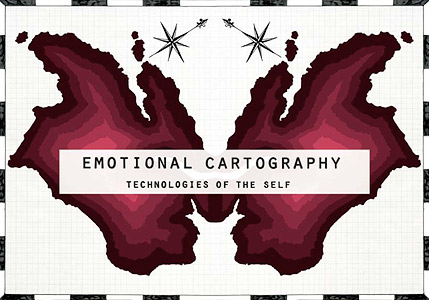Martin Beťko: Hysteria.sk a Kyberia.sk – sonda do virtuálnej komunity (2008) [Slovak]
Filed under thesis | Tags: · community, hacker culture, hacking, information society, slovakia, virtual communities
Táto práca sa zaoberá problematikou nových médií a ich potenciálom k spoločenskej zmene. Práca pozostáva z troch častí. V prvej z nich sa autor snaží problematiku vymedziť v rámci kontextu technooptimistickej a technopesimistickej debaty a zaujať v nej svoje stanovisko, v zvyšných dvoch sa potom svoje argumenty snaží doložiť na príkladoch dvoch prípadových štúdií. V prípade oboch štúdií ide o mikrospoločenstvá – komunity, pri ktorých zrode a vývoji zohrala kľúčovú úlohu informačná technológia, ktorá je v centre súčasného záujmu mediálnych teoretikov – Internet. Hystéria.sk bola diskusným serverom, ktorý v období rokov 1998 – 2006 združovala početnú hackerskú komunitu. Jej fungovanie bolo úzko naviazané na využívanie sledovaného média a viedlo u členov k vytvoreniu špecifických návykov a subkultúrnych prvkov. Kybéria.sk je komunitným diskusným webom bez užšieho zamerania združujúcim v súčasnosti asi 7 500 užívateľov. Jej komunitný charakter vyplýva zo zdieľania spoločného virtuálneho prostredia tvoreného fórami, článkami a osobnými denníkmi. Hoci oba fenomény fungovali istú dobu viac menej oddelene, existovali medzi nimi silné podobnosti ktoré nakoniec viedli k zblíženiu oboch komunít a ich následnému prepojeniu. Tieto podobnosti zahrňovali: decentralizovaný charakter vyplývajúci z nedôvery k autoritám, komunitný charakter charakterizovaný pocitom blízkosti a samotné zameranie oboch serverov, ktoré zahrňovalo voľnú distribúciu informácií medzi užívateľmi. O pozitívnom charaktere týchto atribútov a ich možnom prínose pri ďalšom vývoji spoločnosti sa autor snaží čitateľa presvedčiť v závere práce.
Kľúčové slová
hysteria.sk, kyberia.sk, virtualni komunita, informacni spolecnost, technologie, internet, kyberkultura, hacker
Diplomová práce
Masarykova Univerzita v Brně, Fakulta sociálních studií, Katedra mediálních studií a žurnalistiky
Vedoucí práce: Mgr. David Kořínek
Brno: FSS MU, 2008
Hysteria.sk and Kyberia.sk – a historical and ideological probe into the virtual community
This work is dealing with the issue of new media and their capability to push ahead changes in society. It consists of three basic parts. The main effort of the first part is to situate the issue within the context of the technooptimistic and the technopessimistic debate, the other two parts are basically case studies, which are supposed to support the arguments of the author. The subject of both of these studies are communities, which came to existence in close connection with the proliferation of the new information technology called the Internet. Hysteria.sk has been a discussion server, which became a home for a numerous hacker community during the period of 1998 – 2006. The everyday life of the community was strongly influenced by the usage of Internet and computers and led to the prominence of specific behavior patterns and subcultural elements. Kyberia.sk is a community website with a current population of 7 500 users. Its community character is gained by a shared experience in a common virtual environment. Even though both of these servers are basically alone standing phenomena, they have some strong similarities: stress on decentralization, their community character (cohesiveness) and free flow of information between users. At the very end of the work the author claims these characteristics to have the capability to change (in a good way) the evolution of the society.
Christian Nold (ed.): Emotional Cartography: Technologies of the Self (2009)
Filed under book | Tags: · biometrics, cartography, community art, data visualisation, hacking, mapping

Emotional Cartography is a collection of essays from artists, designers, psychogeographers, cultural researchers, futurologists and neuroscientists, brought together by Christian Nold, to explore the political, social and cultural implications of visualising intimate biometric data and emotional experiences using technology.
Edited by Christian Nold, 2009
Essays by Raqs Media Collective, Marcel van de Drift, Dr Stephen Boyd Davis, Rob van Kranenburg, Sophie Hope and Dr Tom Stafford
A5 Offset Litho – 96 pages – Full Colour
ISBN 978-0-9557623-1-4
Published under a Creative Commons, Attribution, NonCommercial, ShareAlike Licence
More info (author)
PDF (Full Quality PDF, 44 MB)
PDF (Screen Quality PDF, 2 MB)
Pekka Himanen: The Hacker Ethic and the Spirit of the Information Age (2001) [EN, DE]
Filed under book | Tags: · computing, ethics, hacker culture, hacker ethic, hacking, information society, open source

“In The Hacker Ethic, Himanen is trying to understand the core of informationalism, the post-industrialist paradigm, extending the ideas of Manuel Castells’ Information Age. As an alternative to the industrial-capitalist protestant work ethic he proposes a hacker ethic as something like a cyber communitarianism. The structure of the information society is a web, which in contemporary business world manifests itself, for instance, in dynamic outsourcing and even cooperation with one’s competitors. The “knots” of such a web get activated according to the needs and opportunities.
According to Himanen, the three main features of hacker ethic are:
* enthusiastic, passionate attitude to the work that is enjoyed
* creativity, wish to realise oneself and one’s ability, often in teams that are formed spontaneously (project orientation)
* wish to share one’s skills with a community having common goals, along with the need to acquire recognition from one’s “tribe”; one is motivated by inner zeal rather than external awards: the fruits of one’s work are donated to everybody for their advances and further developments
Manuel Castells thinks that the innovations produced by hackers are the foundations of the development of the whole culture. According to Himanen, the social hackerism begins from such things as vegetarianism, whereas the opposite of it is represented by Microsoft and the licensing of computer programs. Himanen thinks that in the information society we need a radical lack of prejudice, such as he has met in philosophy lessons to children. A critical challenge of the Internet era is the ability to meet the other human being.”
Prologue by Linus Torvalds
Epilogue by Manuel Castells
Publisher Secker & Warburg, 2001
ISBN 0436205505, 9780436205507
232 pages
The Hacker Ethic and the Spirit of the Information Age (English, 2001, no OCR, updated 2016-1-16)
Die Hacker Ethik und der Geist des Informations-Zeitalters (German, trans. Heike Schlatterer, 2001, updated 2016-1-16)

